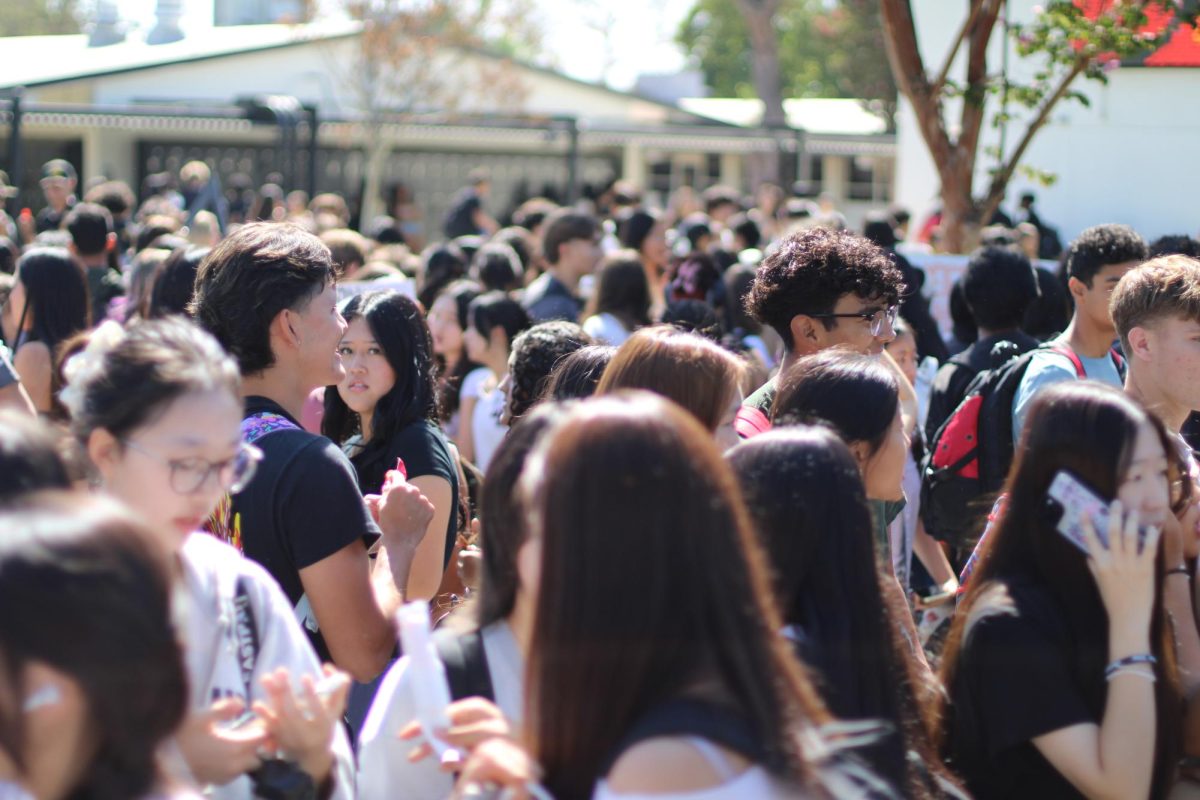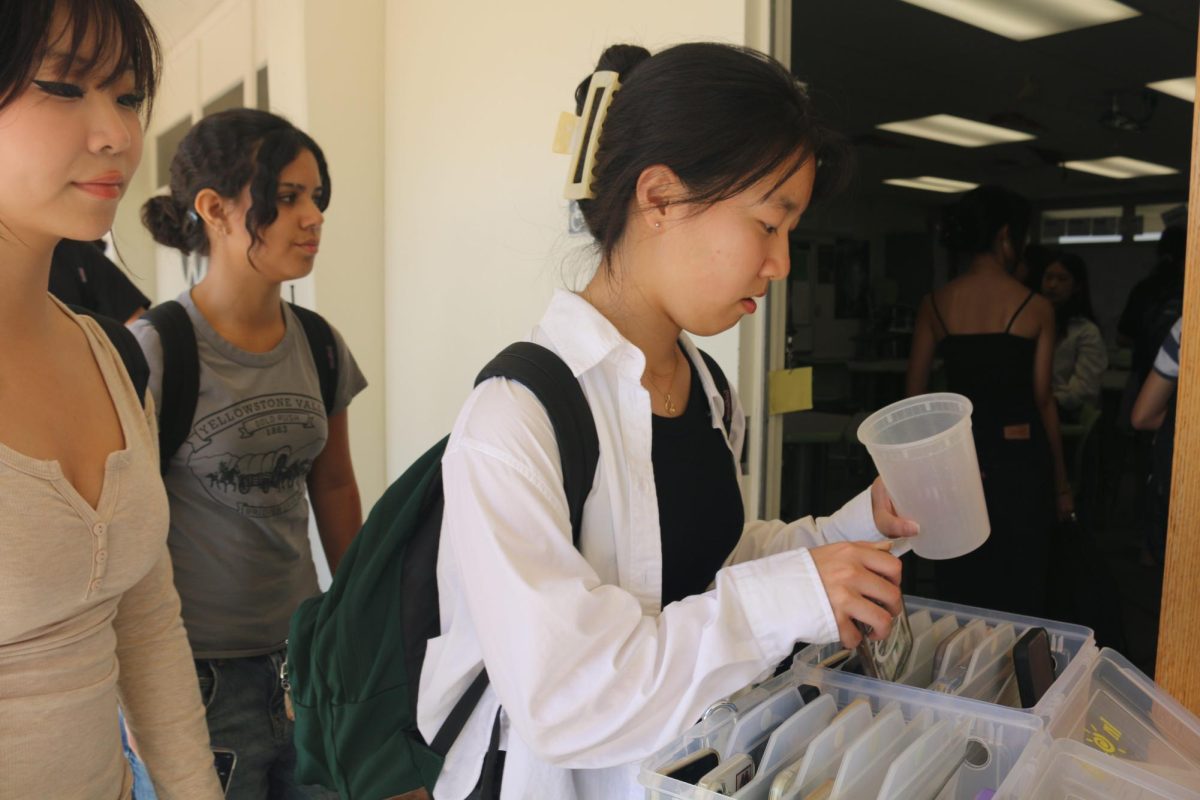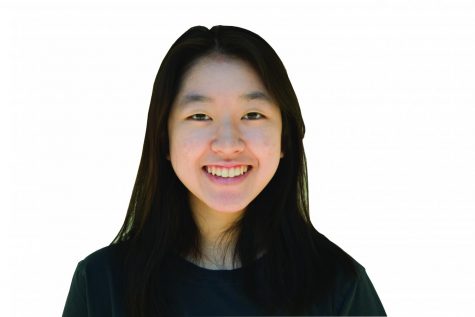With the Delta variant bringing COVID-19 case numbers up again, students, parents and staff remain excited about the reopening of Sunny Hills High School for live classroom instruction on Monday, Aug. 16, hoping that with enough people getting vaccinated, the campus won’t have to shut down again.
“As much as I am worried about COVID-19, I just couldn’t stay at home anymore,” said senior Dominic Siañez, who was among the few who chose to come to campus for hybrid learning during the last school year. “Even though it still feels unsafe now, for the sake of sanity I can’t do another Zoom call; staying home and away from friends would be too hard for me.”
His mother, America Siañez, looks forward to her son being able to spend his entire senior year in-person and hopes the Delta variant will not pose a large threat to the students and staff.
“I would love for Dominic to enjoy all of the senior traditions and any activities,” she said. “This is a scary time but we all have to do our best to get through this storm.”
Myra Deister, Sunny Hills computer science and math teacher, holds concerns regarding the safety of unvaccinated students and staff, but ensures she will make an effort to ease the transition for her students from full distance learning to now full in-person learning.
“My concern is spreading the Delta variant to others due to how contagious it is,” Deister said. “I plan on taking a more flexible approach this year which includes checking in with students more often, adjusting pacing and assignments, if needed.”
Although California Gov. Gavin Newsom reopened California on June 15 , the Delta variant of COVID-19 was first diagnosed in the state in May.
The Centers for Disease Control and Prevention [CDC] defines the Delta variant to be a highly contagious strain of the COVID-19 virus, one capable of spreading up to 50% faster than the original virus that originated from Wuhan, China.
According to a July 29 online article from The Washington Post, recent internal unpublished documents from the CDC suggest the Delta variant may likely increase the severity of illness, especially for those who have yet to receive the COVID-19 vaccine, and as of Aug. 6, the Delta variant accounts for more than 93% of all COVID-19 cases in the United States.
First reports of the variant took place in India back in Dec. of 2020; however, the variant made its way through Great Britain before striking the United States with its first case in March of this year.
The Orange County Health Care Agency reported 465 new positive cases and 497 hospitalized COVID-19 patients as of Thursday, Aug. 12; whereas, the Los Angeles County of Public Health reported 3,498 positive cases and 1,573 hospitalized COVID-19 patients as of Wednesday, Aug. 11.
Deister, who’s also vice president of the Fullerton Secondary Teachers Organization – the teachers union for those working in the Fullerton Joint Union High School District [FJUHSD] – hopes to see all students eligible to get vaccinated to do so before returning to in-person school.
“[We] do watch the case rates as they are publicized,” Deister said. “If someone does not get vaccinated, we continue to advocate for regular tests of those individuals to keep both teachers and students safe.”
During an Aug. 11 FJUHSD board meeting, trustees agreed with a district health and safety plan presented by SH principal Allen Whitten and Buena Park High School principal Sonje Berg to not require students to social distance or wear their masks outside the classroom.
“Students will continue to be required to show their green Qualtrics check marks as they enter campus” as in past practice during summer school and hybrid learning, Whitten said during his presentation to the board meeting. “Masks will be required for students and staff while indoors and will be optional outside.”
Deister also is concerned about social distancing when students are unmasked and are outdoors on campus while the Delta variant is still impacting the state.
“Honestly, we don’t know what effect the Delta variant will have at this point,” she said. “If a student is not vaccinated, my concern would be for the increased possibility of contracting COVID if a student is not masking and not socially distancing outdoors.”
Having already lost her chance at an entire in-person freshman year to COVID-19, sophomore Olivia Kim, who has yet to receive the vaccine, hopes the Delta variant will not ruin her chances of attending in-person high school again.
“I think the variant will end up affecting our school year pretty badly as the case numbers rise again,” Kim said. “I am very sad because I really did not like staying home at all, and I hope it does not make us move back online.”
She remained at home all throughout last year to keep her and her family members safe from the coronavirus pandemic and said she feels safer returning to school this year now that her family members have all been vaccinated.
“There has not been a main reason as to why I have not received the vaccine,” Kim said. “But I am definitely planning on getting it soon — maybe after school starts.”
Despite the district’s decision to not require masks outside of the classroom, she said she plans to keep her mask on at all times to keep herself and all of her peers safe.
“I would not care much if other students were wearing masks or not because it is their choice,” Kim said. “Even if I am the only one wearing a mask, I care more about being safe.”
Sophomore Evan Hsu, who came to school for two weeks last school year, is also worried about the Delta variant’s impact.
“I think the Delta variant is definitely more worrisome than the other variants,” Hsu said. “However, everyone should return to going to school in person as the benefits of interacting with your peers and teachers outweigh the negatives, at least for me.”
He was reluctant to continue attending school in-person in hybrid learning last year, but with more students and staff receiving the vaccine, Hsu said he feels safe enough to return — especially after receiving the Pfizer vaccine in early June.
“Even if I do catch COVID from an unvaccinated person, my family and I are already vaccinated, so the chances of getting a severe case is very unlikely,” Hsu said. “I will wear my mask when I’m inside or around a lot of people, but I don’t plan to keep it on outside if there are not many people around me.”
His mother, Cindy Hsu, said she’s looking forward to her son being able to attend school every weekday — unlike last year — but still holds concerns over whether the Delta variant will force schools to close again.
“We were fine with the hybrid model, but certain aspects made it difficult,” Cindy Hsu said. “He didn’t really experience what it’s like to be a freshman at Sunny Hills, so we are excited for him to return back to school with a normal/regular school schedule.”
For the two weeks Evan Hsu did spend on campus last school year, his parents found it difficult to drive back and forth between home and school, especially with sports practice.
“He wasn’t allowed to stay on campus after his last class,” the mother said. “He needed to go home and then be brought back to school about an hour later, which made it difficult for both of us working parents.”
Dominic Siañez, who also received the Pfizer vaccine in April, shares the Hsus’ worries about the possibility of spending another school year online. However, as a student athlete on the boys volleyball and cross country team, he has more at stake.
“For cross country, I am worried that we will not only lose some races but also be restricted from racing at certain parks,” Dominic Siañez said, whose cross country coach had voiced the same concern earlier to his team. “I am not that concerned for the volleyball season because I think we will have all the games without any issues, but the small possibility of missing out on the season is quite scary.”
Similar to the 2020-2021 season, he expects there to be less fan attendance for volleyball games, which will continue to be live streamed, but expresses more concern about whether his parents can continue to attend.
He lost his chance at a normal CIF season last year because of how COVID-19 altered his schedule, and with this season being his last before going off to college, he hopes the Delta variant will not take the same toll as the original virus did during his junior season.
“It is the last year I get to play and compete with friends,” Dominic Siañez said. “I hope that it will be a great year, especially because I just made the boys varsity volleyball team.”
Like her son, America Siañez holds many concerns regarding the Delta variant’s potential to inhibit her son’s chances at a final in-person year as a senior high school athlete.
“Some kids, particularly last year’s seniors, didn’t have a chance to show what they worked so hard for during their final year,” America Siañez said. “My son is now a senior and has been patient through what feels like a lot of promises that sadly could not be fulfilled. It is heartbreaking, and I hope it doesn’t happen again.”



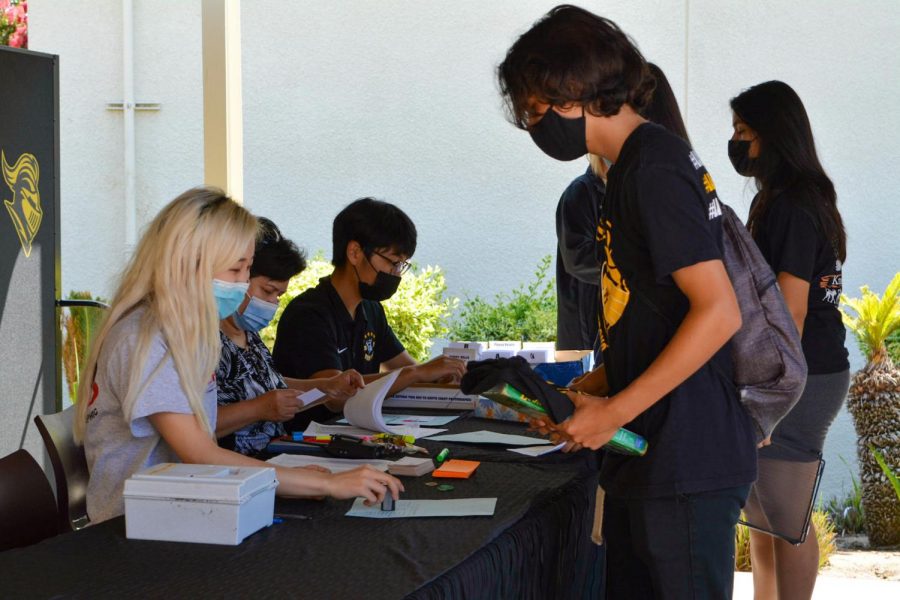
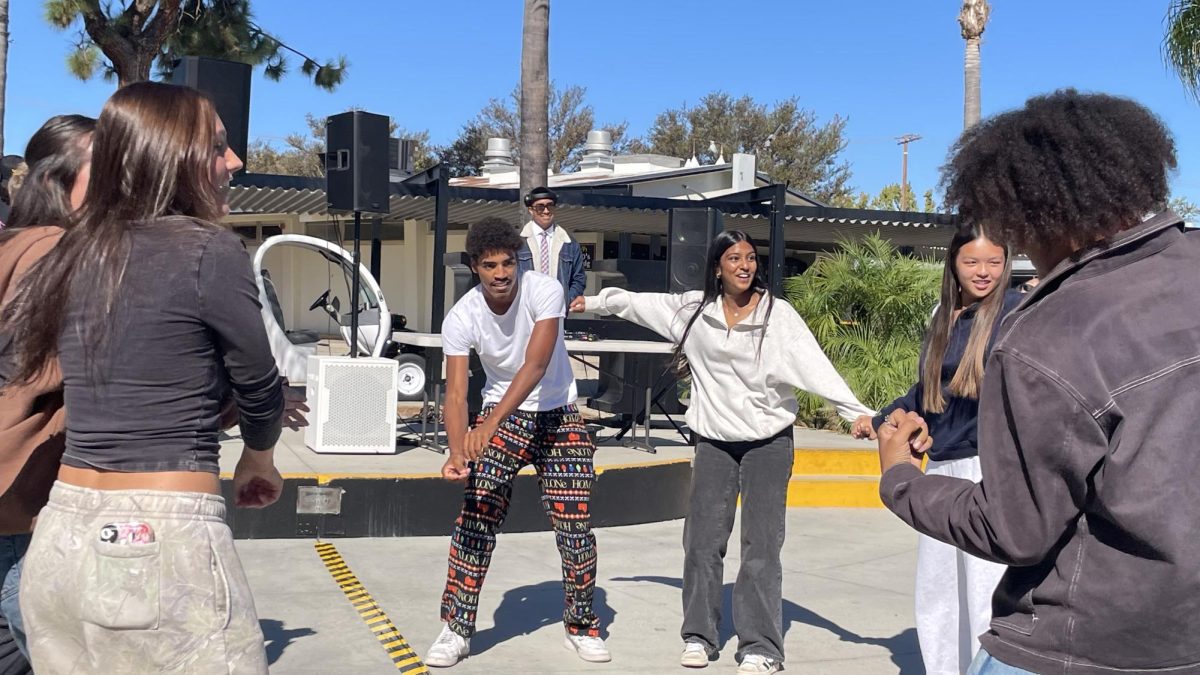

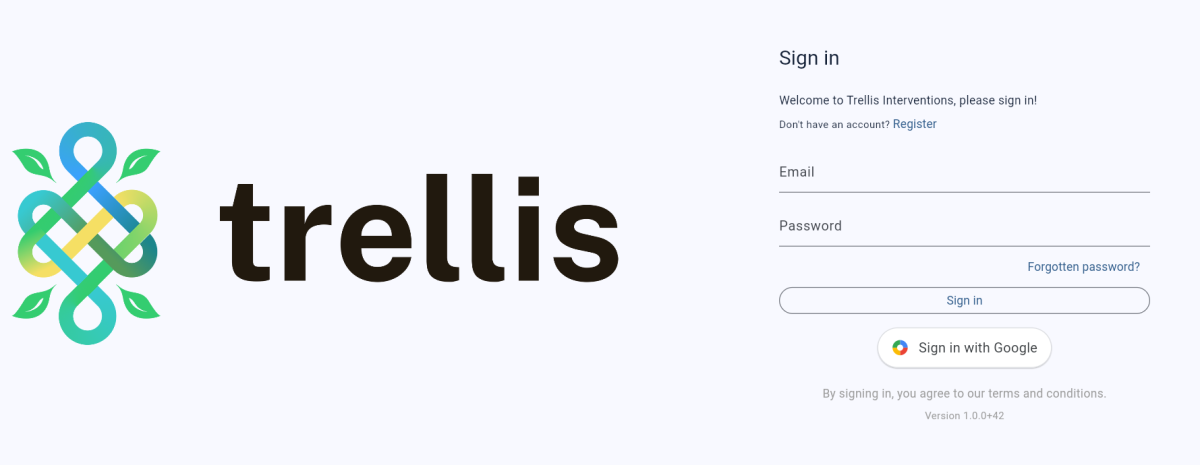
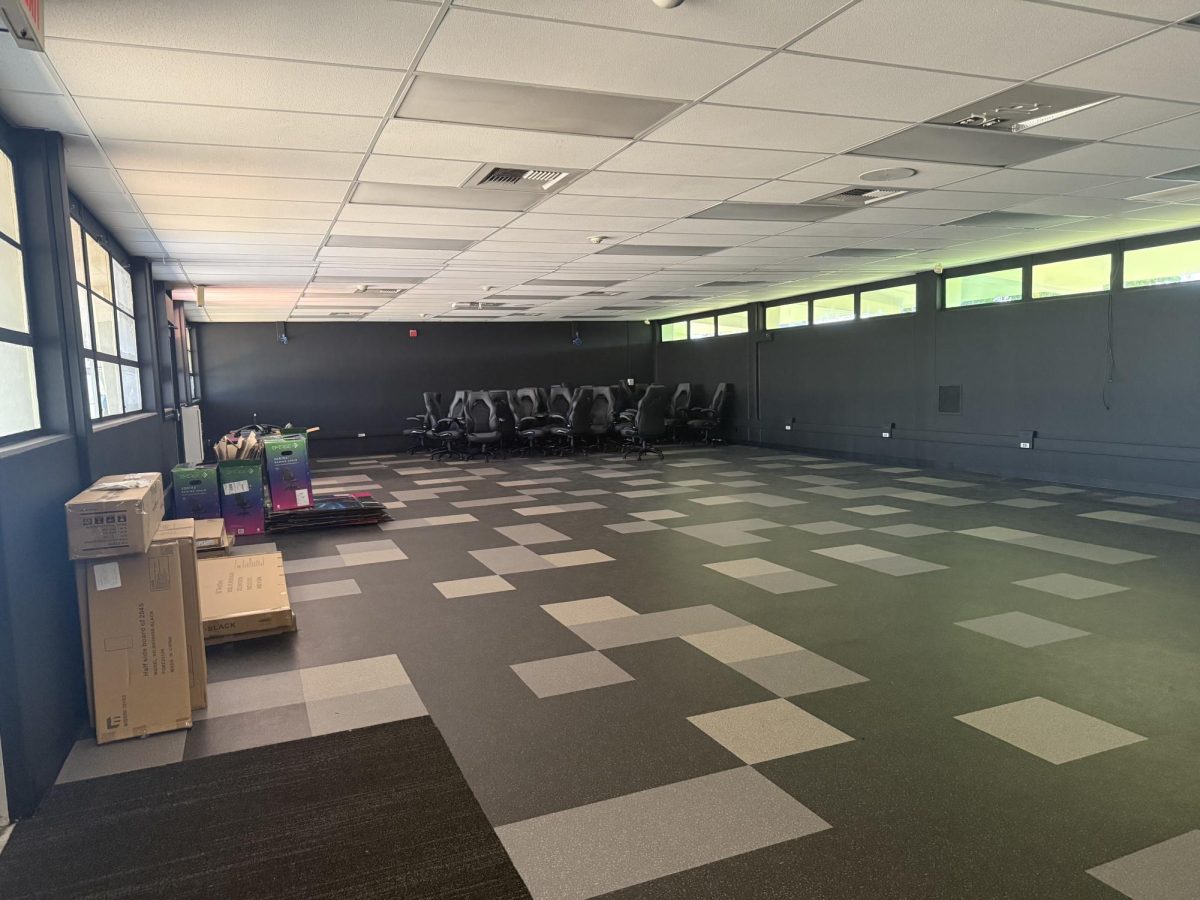
![Students and staff across the Fullerton Joint Union High School District [FJUHSD] received emails promoting a part time job offer with pay. The messages were set from compromised FJUHSD accounts.](https://shhsaccolade.com/wp-content/uploads/2025/09/image1-2-1200x527.png)
